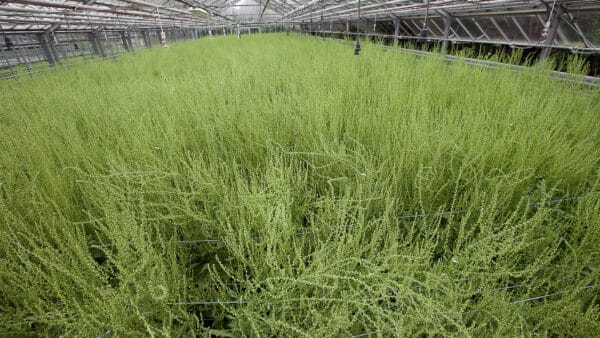Mergers and acquisitions rock the boat in every sector — it’s no different in agriculture. The question comes into play: how are independent seed companies responding?
“While we’ve seen consolidation recently, it’s not necessarily a sharp increase,” says Todd Martin, CEO of the Independent Professional Seed Association (IPSA). “It’s for a whole host of reasons: business is tougher, companies have to be able to mark growth and we’re seeing retirements and succession planning play into this.”
Independent seed companies play an important role in providing choices to farmers in the U.S. and beyond. Understanding the challenges they face and the current environment will give you a better idea as to the health of this sector of the U.S. seed industry.
M&As in the News
In 2021, Seed World reported several mergers or acquisitions within the seed sector. One independent in the news includes Rob-See-Co, making headlines twice, once for acquiring NorthStar Genetics in March and again in August for its acquisition of Masters Choice.
In each of these acquisitions, Rob Robinson, CEO of Rob-See-Co, states his excitement for bringing in other family-owned businesses. The footprints of the companies will remain largely the same, with small changes outlined by Robinson in their announcement of the acquisitions.
Acquisitions like this can excite some in the independent sector because it provides businesses the opportunity to continue when owners decide not to stay involved in the operation for one reason or another. The business lives on, just under a different name.
Legacy Agripartners, a recently-renamed holding company, aims to bring together seed companies in the Midwest. Their goal isn’t to change their operations or names, but instead to give them more power under a unified leadership team. Right now, Legacy Agripartners community of seed companies includes Legacy Seeds and DF Seeds.
“If we were just seeing these companies being eliminated from local communities in rural America, this would be a step backward for our industry and for farmers,” says Colin Steen CEO, Legacy Agripartners. “So, I see some of the way it’s being done as positive. It can give life to a brand beyond the life of the current owners.”
Despite numerous announcements over the past decade, experts say merger and acquisition activity isn’t any more active than they’d expect. When compared to the heyday of the late 1990s and early 2000s, it’s down significantly, and not likely to spike to an incredible degree.
“For corn and soybean companies, activity has been down for the past eight years comparatively,” says Garrett Stoerger, partner at Verdant Partners, a transaction advisory firm based in Illinois. “These latitudinal moves in the market are actually pretty healthy because for a lot of these companies it’s a form of succession planning and a way to stay in the business.”
That said, he’s keeping an eye on the vegetable seed industry. There’s high demand but incredibly low supply of vegetable breeding companies, it’s a seller’s market in that sector.
Differentiation is Paramount
Independent seed companies are faced with many of the same challenges seen across the industry: access to talent and the need for differentiation. For independents, however, the challenges are exasperated by having fewer resources than multi-national competitors.
“One of our biggest challenges is how do we differentiate from other independent seed companies?” Steen says. “We all rely on the same or similar sources for germ plasm and traits, so not only do we need to differentiate from those providers but also from each other.”
He suggests taking the time to figure out what each company can highlight as a key strength, including:
- Customer experience
- Seed handling and conditioning
- Seed treatment options
- Local knowledge base
- Crop specialties
Bookend these differentiators by selecting high quality genetic and trait packages that suit the needs of the farmer in that area. Steen notes that once companies discover what their key differentiating factor is, take that messaging from the CEO’s desk to the field to ensure unified conversations.
“I think [another] key piece we have to recognize is that independents are under an enormous amount of pressure from their access to genetics,” Martin explains. “A key difference between the U.S. and say, Canada, is the approach to selling. In the U.S., independent seed companies can license and sell the same genetic package, they can’t in Canada. That’s tough and it minimizes competition.”
Genetic licensing is a key part of independent seed company businesses, and continued access to variety is needed. Corn and soybean genetics are widely licensed in the U.S., and while it might be the same DNA, Martin says companies can differentiate their offer with other services.
“They might be the same genetics, but the value proposition is altogether different, different quality, different seed treatments and different sales approaches,” he explains.
A Shrinking Labor Pool
Undoubtedly, one of the growing challenges for anyone in business is labor shortages. From internal staffing shortages to shortages in the supply chain, labor challenges are affecting how everyone does business.
The challenge for independents is proving that smaller and local companies can provide opportunities for employees they can’t find elsewhere.
“Labor is a big struggle of ours, no different than anyone else,” Steen says. “There are fewer of us in the company and that means we provide a wider variety of work experience. And there’s a connection to leadership throughout because we want to hear all ideas.”
While the competition for labor is fierce, the seed industry continues to find innovative ways to lure talent. From flexible schedules to work-from-home and hybrid environments, to expanded benefits, the seed industry continues to find innovative ways to attract talent.
Strong Future
While challenges are ever-present for independent seed companies, they’re committed to the industry.
“We do have a lot of challenges: differentiation, aging ownership, etc.” Steen says. “But to sum it all up, it’s worth the fight to stay in it. We provide a really important service for farmers and local communities.”













